Imagine this: You’re in your garage, working on a DIY project, fixing an old tool, or maybe just cleaning up that pile of clutter you’ve been ignoring for months. You accidentally scratch your hand on a rusty nail, or you jab yourself with a forgotten old screwdriver. “It’s just a little cut,” you think. “I’ll rinse it off and get back to work.” But what you don’t realize is that you may have just invited a silent killer straight into your bloodstream — one that doesn’t need much to wreak havoc. This hidden threat is so dangerous, it can cause muscle paralysis, lockjaw, and even kill you if you don’t act fast enough.
What Is Tetanus, the Silent Killer?
Tetanus, often called “lockjaw,” is a life-threatening bacterial infection caused by Clostridium tetani. This bacteria is commonly found in soil, dust, and rusted metal objects. Once it enters your body through a wound, it produces a powerful toxin that attacks your nervous system.
The first signs can seem small: muscle stiffness, difficulty swallowing, or cramps. But within days, it can escalate to severe muscle spasms, breathing difficulties, and full-body paralysis. Without prompt treatment, tetanus can quickly become fatal.
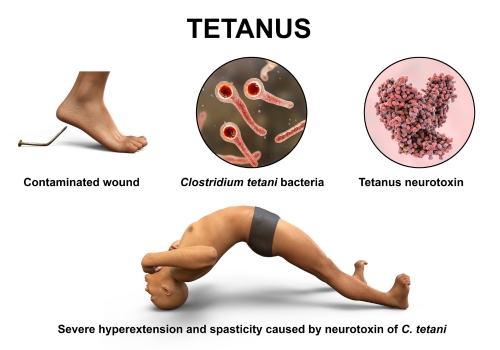
Unlike many infections, tetanus doesn’t spread from person to person — it only needs a single point of entry through a cut or puncture. That’s why it’s known as a “silent killer”: you might not even realize you’re infected until it’s too late.
How You Can Get Tetanus in Your Garage
Your garage is the perfect hiding place for tetanus bacteria. Dusty corners, old tools, and forgotten projects create a breeding ground for danger. Here’s where you’re most at risk:
- Rusty Nails and Sharp Metal Edges: Stepping on a rusty nail or cutting yourself on an old metal shelf might seem like a minor inconvenience. But these are classic gateways for tetanus bacteria to enter your body. Rust isn’t what causes tetanus, but it often indicates that an object has been exposed to dirt and moisture — perfect conditions for the bacteria to thrive.
- Dirty Tools and Old Equipment: Many of us store tools in the garage without cleaning them properly. Garden shears, screwdrivers, saw blades — all can harbor dirt and bacteria. Even a tiny nick from a dirty tool can be enough to start a serious infection.
- Gardening and Yard Tools Stored Indoors: If you keep your gardening tools in the garage, chances are they carry soil residue — one of the main sources of Clostridium tetani. A small scratch from a dirty rake or hoe could be all it takes to put you in the hospital.
How to Prevent Tetanus from Becoming Your Silent Killer
Truth be told, most tetanus cases require specialized hospital care to survive. Even with proper medical treatment, this infection is incredibly dangerous — around 10% to 20% of patients don’t make it. That’s why preventing tetanus in the first place is absolutely critical for anyone focused on survival. Here’s how to do it:
- Stay Up-to-Date with Your Tetanus Shots: Many seasoned preppers choose to keep their tetanus vaccines up to date as a practical safeguard. In a real emergency, when hospitals are unavailable, this can mean the difference between life and death. Adults need a booster shot every 10 years, but if you get a deep or dirty wound, doctors often recommend an extra booster if it’s been more than five years since your last one.
- Wear Protective Gloves and Clothing: Whenever you’re working in the garage, especially with sharp or dirty tools, wear thick gloves and long sleeves. This simple barrier can dramatically reduce the risk of cuts and punctures.
- Regularly Inspect and Maintain Your Tools: Clean your tools after each use, and check for signs of rust or damage. Store them in dry, sealed areas to prevent contamination. A few minutes of maintenance today could save your life down the road.
What to Do If You Get Injured
Accidents happen — even the most careful prepper can slip up. If you get cut or punctured in your garage, act fast.
- Immediate First Aid Steps: Clean the wound immediately with soap and running water. Remove any dirt or debris as thoroughly as possible. Apply an antiseptic and cover the wound with a clean bandage.
- When to Seek Medical Attention: If your wound is deep, dirty, or caused by something rusty, seek medical help right away. Don’t wait to “see if it gets worse.” You may need a tetanus booster or even a tetanus immunoglobulin injection to stop the bacteria before it spreads.
- Signs You Should Never Ignore: Watch for symptoms like jaw stiffness, muscle cramps, trouble swallowing, or unexplained headaches. These could be early signs of tetanus — and you need emergency treatment immediately
If you puncture yourself on a rusty nail or anything like that and suspect tetanus, but medical help is unavailable (like post-SHTF), immediately clean the wound thoroughly with clean water — which you can always have on hand using this backpack-sized water generator that can offer you up to 50 gallons of pure, fresh water per day, out of thin air! — and strong antiseptic. Apply an antibiotic ointment and keep it covered. This is exactly why preppers stock emergency antibiotics — they can help prevent secondary infections when no doctor is around.
Other Silent Killers Hiding in Your Garage
Tetanus isn’t the only threat lurking in your garage. There are plenty of other dangers waiting to catch you off guard — each one capable of harming or even killing you before you realize what’s happening.
Chemicals and Hazardous Materials
Most garages are stocked with bottles and cans of paint, pesticides, cleaning supplies, and solvents. Many of these can cause severe burns, lung damage, or deadly poisoning if mishandled or accidentally mixed. Even a small spill can create toxic fumes that slowly poison the air you breathe.
Always store chemicals in clearly labeled, sealed containers, and never mix unknown substances. Wear gloves and eye protection, and keep the garage well ventilated whenever you handle these products.
Combustible Liquids and Flammable Fuels
Gasoline, propane tanks, lighter fluids, and paint thinners are common in many garages — and all of them can turn your workspace into a fire trap. Just one spark from a tool or an electrical short can ignite a fire or even trigger an explosion.
Store these liquids in proper, approved containers, away from any ignition sources. Never smoke or create open flames near stored fuels, and always double-check that caps are tightly sealed.
Faulty Wiring and Electrical Hazards – A Silent Killer for 1,000 Americans per Year
Old, damaged, or poorly installed wiring is a major fire hazard. Overloaded circuits, frayed extension cords, and ungrounded outlets can all spark fires or cause deadly electric shocks. In the U.S., electrocution causes roughly 1,000 deaths annually (NIH). A significant portion of these incidents result from bad wiring and improper electrical installations.
Regularly inspect your garage’s electrical system, avoid overloading outlets, and replace any questionable wiring immediately. If in doubt, call a qualified electrician — it’s not worth gambling with your life.
To further protect your home and reduce reliance on potentially faulty wiring, consider investing in an alternative system. There’s a setup that lets you generate your own electricity independently from the grid, reducing strain on old circuits and lowering your energy bills — all while boosting your home’s safety and resilience.
Mold and Hidden Fungi
Garages often have leaks or poor ventilation, creating the perfect environment for mold to grow. Certain types of mold can release mycotoxins that damage your lungs, weaken your immune system, and cause serious chronic health problems.
Inspect corners and behind stored items regularly. Use a dehumidifier if needed, and repair any leaks or water damage immediately. When cleaning mold, always wear gloves and a respirator mask.
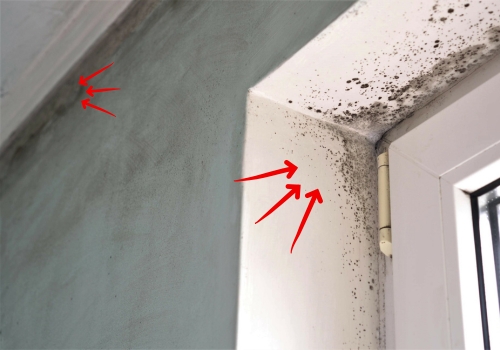
Dangerous Tools and Power Equipment
From table saws and angle grinders to simple hand tools, your garage is full of sharp, fast-moving dangers. One slip or one moment of distraction can lead to severe cuts, amputations, or fatal injuries.
Maintain all equipment properly, use safety guards, and wear protective gear like gloves, goggles, and hearing protection. Always keep sharp tools stored securely, especially if you have children or visitors.
Clutter and Falling Objects
Piles of boxes, unstable shelving, and stacks of old junk can turn your garage into a deadly obstacle course. In an emergency — like a fire or home intrusion — trying to navigate a cluttered garage can slow you down or cause you to become trapped.
Keep walkways clear, store heavy items on lower shelves, and secure shelving units to the walls. Regularly declutter and organize. It could literally save your life. I learned about true organization from one of the most skilled Americans when it comes to survival.
In his book A Navy SEAL’s Bug-In Guide, Joel Lambert does an excellent job explaining the crucial items you need to keep properly stored for survival situations. This helped me get rid of a lot of useless junk I was hoarding in my garage. I also learned from Joel:
- What Happens if You Take Expired Medications
- What Items Vanished Immediately After Hurricane Katrina
- Things You Throw Away That You Should Add to Your Stockpile Instead
- The Most Common Security Mistakes You’re Probably Guilty of Too
Insecure Garage Openers and Locks
Speaking of security mistakes, most folks don’t think of their garage door as a “killer,” but a weak or outdated opener can make it shockingly easy for intruders to break into your home. Once inside, criminals have access to your tools, vehicles, and often a direct route into your living space.
According to the FBI, around 1.65 million home invasions occur in the U.S. every year, leading to about 100 deaths. Many intruders enter through unsecured garages, making it critical to upgrade locks and reinforce doors before it’s too late.
Upgrade to a modern, secure garage door opener with rolling code technology. Add extra locks or security bars, and never leave your garage door remote in your car parked outside. A few small upgrades can mean the difference between safety and tragedy.
Final Thoughts
Your garage should be a safe place to work, store supplies, and prepare for emergencies — not a hidden minefield waiting to take you out. Best believe there are huge dangers lurking inside, from tetanus to hidden chemicals and faulty wiring. Still, you can take simple, effective steps to protect yourself and your family.
Inspect your tools and electrical systems, improve your security, and never underestimate the small hazards. In a crisis, your garage could become your sanctuary or your downfall. The choice is yours — prepare wisely, and stay alive.
The garage is an incredibly useful space for anyone, but there are other places around your property that can help you get truly prepared. Here’s where to go when you don’t have a fallout shelter — and the best spots to stash your most precious survival supplies when SHTF.
You may also like:
6 Easy Ways To Remove Mold Naturally
DIY Medical Superglue That Can Stop Bleeding in Seconds (Video)
How A Real Prepper Handles Calgary Garage Door Repairs

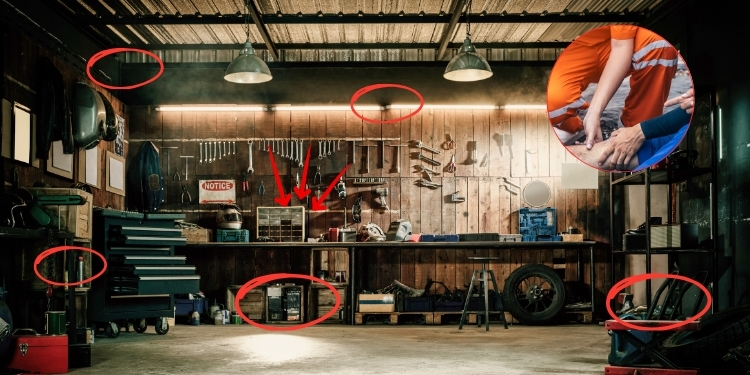
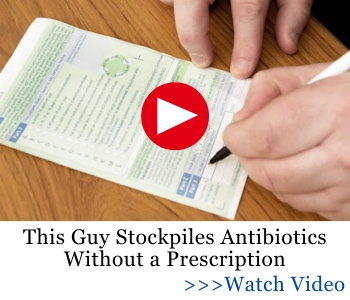

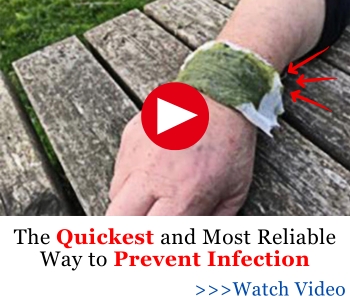






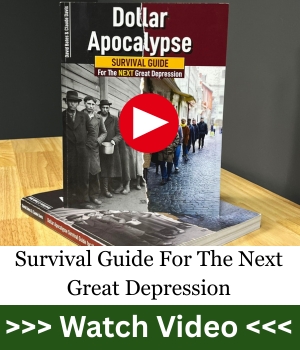













these shots cause parkinsons disease and many doctors know it.
Entire article on tetanus fails to mention one important word: Anaerobic. Clostridium tetani thrives and multiplies in an oxygen-deficient environment. Cuts and scrapes, even with rusty edges, are not going to result in a full-blown case of tetanus. Just clean and disinfect the wound like you normally would/should and carry on with your life.
However a *puncture* wounds does require special treatment. Use a clean sharp edge to open it up from top to bottom and then (again) clean and disinfect as normal. If you can see the bottom of the wound then you should be able to adequately clean and disinfect it. If the wound is too deep for that then seek professional help.
Also, this would be a good time to start taking a traditional “blood purifier” herbal formula such as red clover & chaparral, etc.
I’d like to rely on a traditional tetanus “shots” but the entire COVID shart-show tells me that Big Pharma can hardly be trusted on that front. We are on our own in that respect…
God Bless you all!
Thank you for reminding me of what my mom drilled into us kids before we were even school age. Its the deep puncture (like stepping on a old rusty nail) that you must pay attention to. We ran around the farm barefoot most of the summer and got our share of scrapes and small cuts but she made it clear that if we ever stepped on a nail to tell her right away.
Your mom was absolutely right! Those deep puncture wounds, like stepping on a rusty nail, are exactly the kind that can lead to serious trouble. It’s true that running around barefoot as a kid was part of the fun, but those nail injuries were no joke. And it’s not just nails. In a garage, there are plenty of other things that can cause similar punctures: screws, screwdrivers, even stray pieces of wire.
Hi PietroG,
Thank you for commenting! You raise an important point: Clostridium tetani is indeed an obligate anaerobe, and the role of oxygen-poor environments in the development of tetanus is a fundamental aspect of its pathogenesis.
While the word “anaerobic” may not have appeared explicitly, the article strongly implies the underlying microbiology by highlighting the danger of puncture wounds, deep cuts, and contaminated environments like soil, rust, and dirty tools — all of which are classic anaerobic conditions. The focus on deep or dirty wounds and the urgent need for prompt cleaning or medical evaluation clearly aligns with the clinical realities of how tetanus takes hold.
You’re absolutely right that superficial cuts exposed to air are typically lower risk – but not zero risk, particularly if not cleaned adequately. The article doesn’t claim that every scratch leads to tetanus; rather, it emphasizes that even minor wounds can become dangerous if neglected, especially in environments where C. tetani may be present.
Your point about properly opening and cleaning puncture wounds is solid — and actually echoed in the article’s advice to thoroughly clean wounds and seek care when needed. As for the herbal blood purifiers, while some may choose to include them as supportive measures, they are not substitutes for proven wound care and infection control practices, especially with a pathogen as aggressive as tetanus.
Thanks and God Bless,
Caleb
Just another reason you wont last, lone Wolf.
after SHTF, do everything carefully. a month after NO ELECTRIC, = No Dr. & no new medicine.
Avoid ALL mRNA shots. They are not true vaccines. They are gene tampering.
Wow , this guy should just stay in bed if he is that worried about dying. I’ve been cut, poked, scraped a thousand times by rusty objects never a problem. Trust me, your garage is not that Dangerous. A tetanus shot is a good idea however.
Hello, Trevor! Thanks for commenting! Sure, most of us have gotten plenty of cuts and scrapes over the years without issue. But it only takes one unlucky wound for tetanus to strike, if you’re not cautious. The point isn’t to scare folks into hiding under the covers, but to remind everyone that prevention and knowing how to react is a lot easier than dealing with a potentially deadly infection later.
Your garage might not seem dangerous, but even a small puncture from an old nail or tool can introduce the bacteria. It happened to me once that a nail went into my heel. I can guarantee you, it was not a pleasant experience at all. It doesn’t take much to end up with serious problems…
Have a nice day,
Caleb
Deep wounds – any wounds for that matter – copious irrigation is essential. Squirt into that puncture wound allowing a route for the solution to escape, not forcing crud deeper. Use sterile water if you have it. Contact lens solution is sterile and has germ killers. Make a dilute Betadine and water solution or Dakins solution. Even tap water is better than no flushing. Save syringes – the kind moms get with oral antibiotics for babies or ask at the pharmacy for the largest they have. Make/buy a squeeze bottle that will give you a good stream and save it with your big first aid kit. Yes, get medical attention for puncture wounds but if SHTF, irrigate the best you can. And right now, go check the entire family’s last tetanus shot date. Easy to get them now – SHTF not so much.